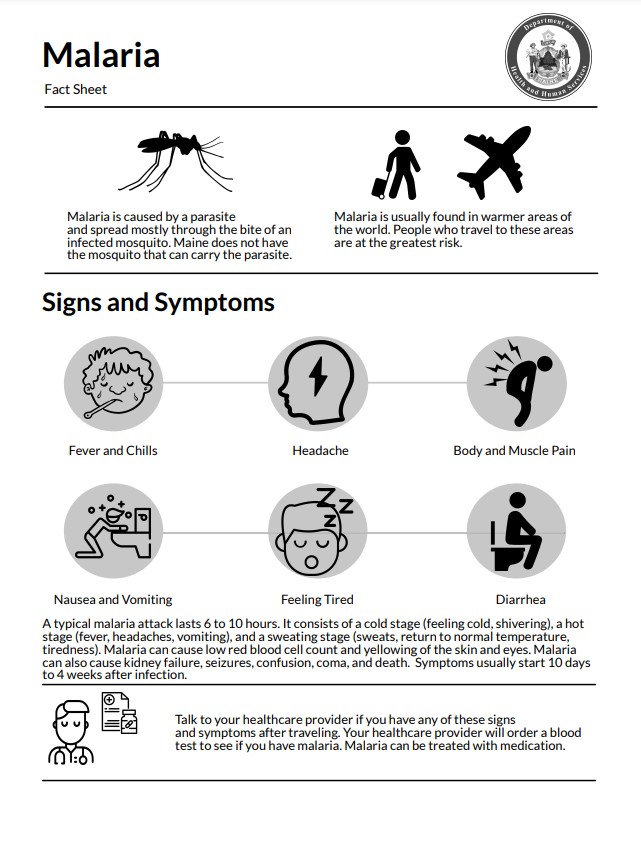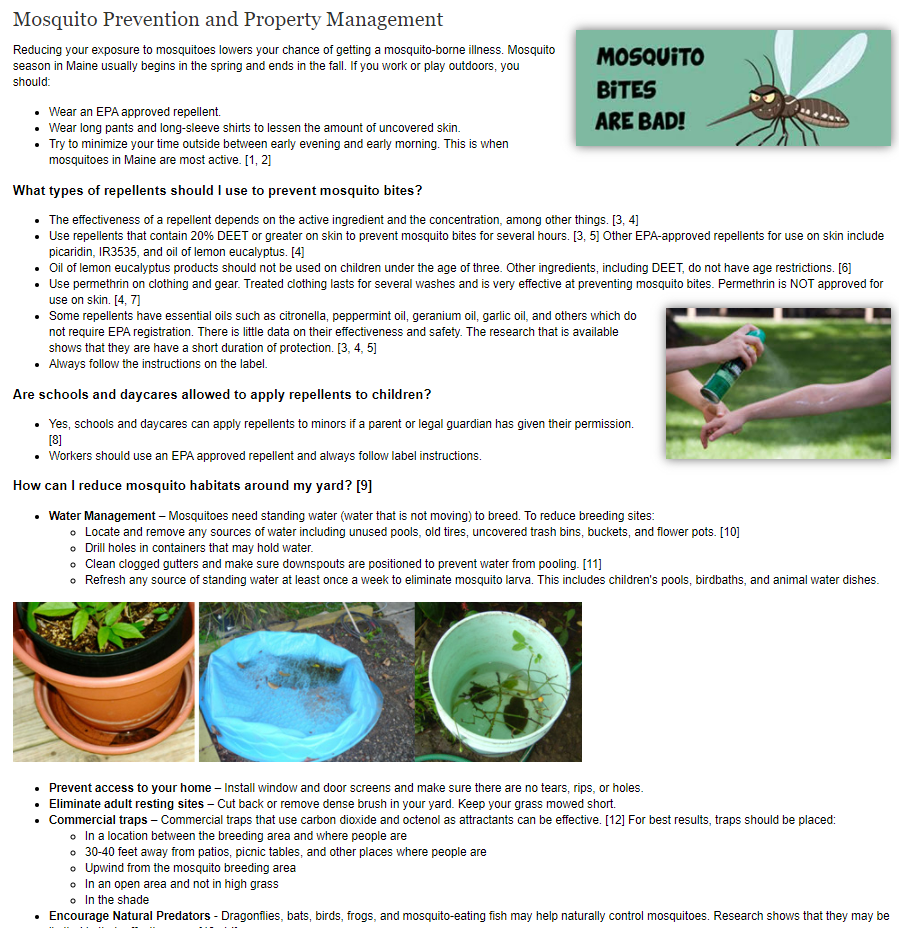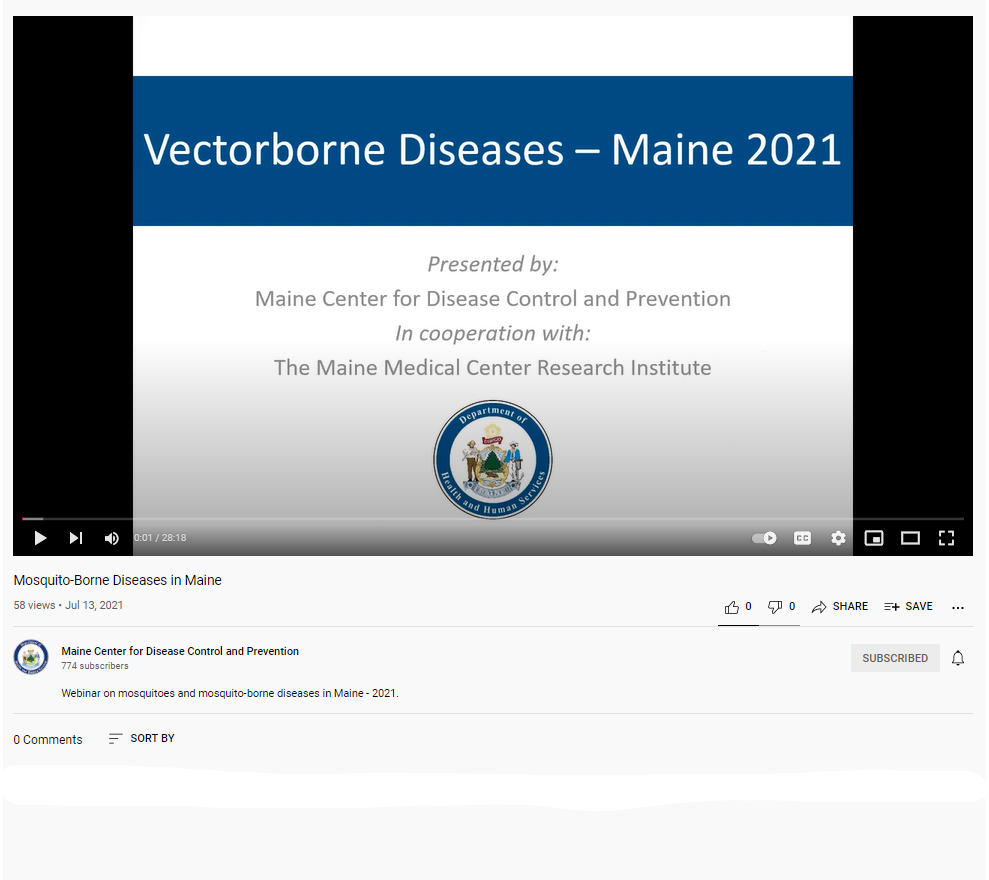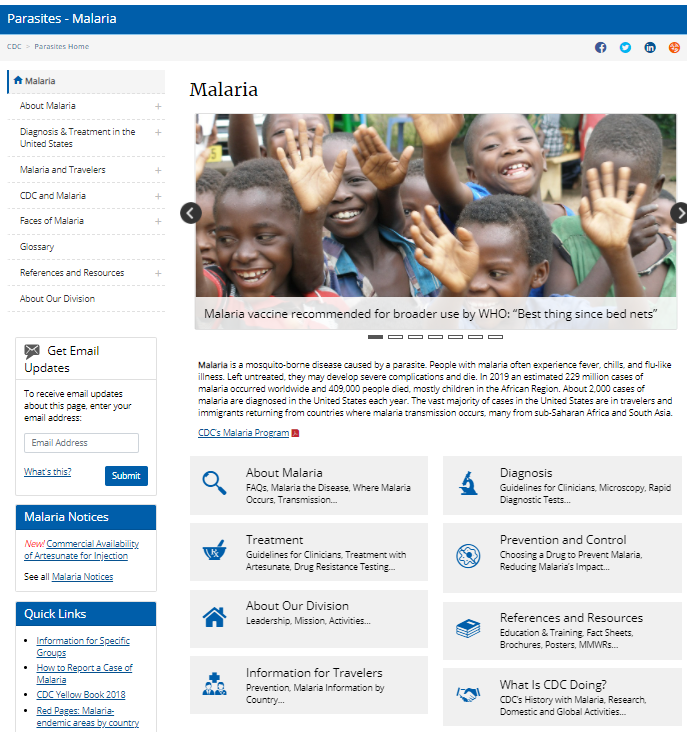DHHS → MeCDC → Disease Surveillance → Epidemiology → Vector-borne Diseases → Malaria Information
Malaria 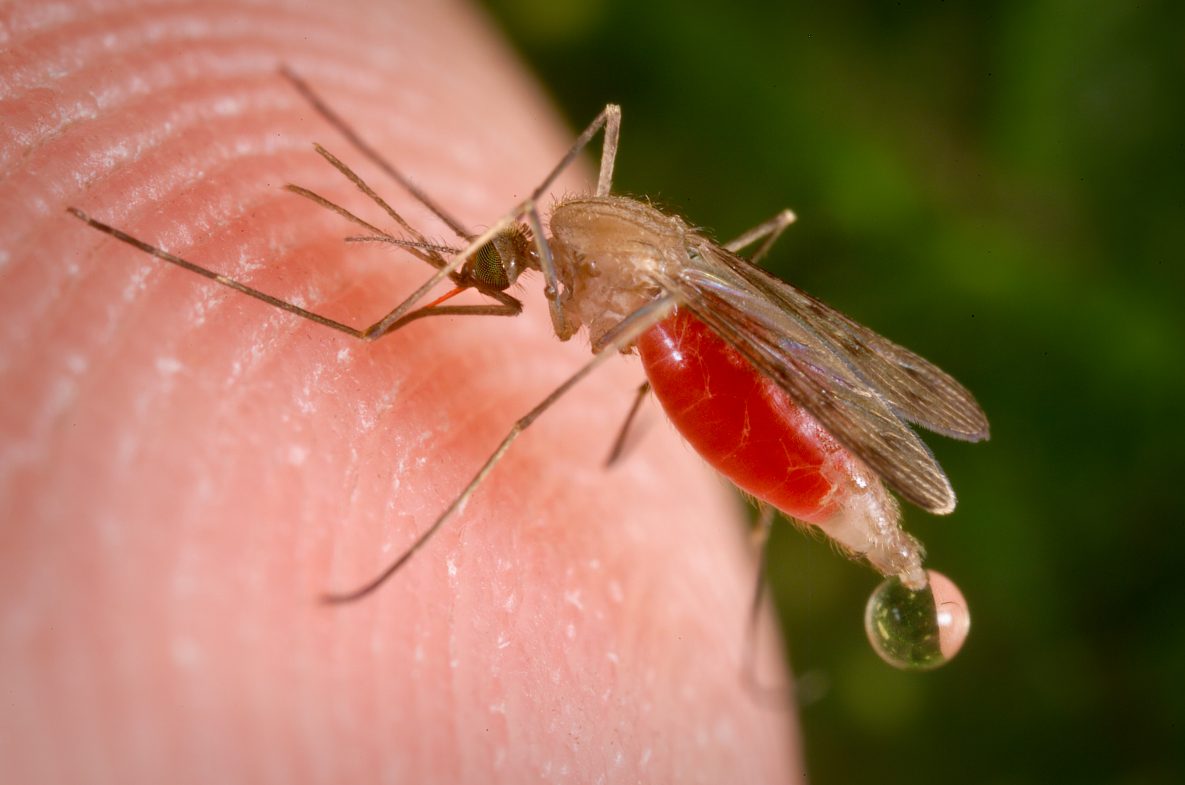
On this page:
- About Malaria
- Symptoms
- Prevention
- Resources for Educators
- Reports and Publications
- Malaria Resources
About Malaria
Malaria is a disease caused by a parasite that can make humans sick. It spreads through the bite of an infected mosquito. Malaria is most common in African countries south of the Sahara and in parts of Oceania. You can also find it around the world in tropical and subtropical areas.
Most cases of malaria in the United States are in immigrants and travelers returning from countries where malaria is common. The mosquitoes needed to spread malaria live in parts of the U.S., especially in southern states. Outbreaks sometimes occur due to transmission in the local area. The mosquitoes needed to spread malaria live in Maine.
Symptoms
For most people, symptoms start 10 days to 4 weeks after an infected mosquito bite. Malaria attachs can recur off and on for years. A typical malaria attack lasts 6 to 10 hours. It consists of three stages:
- A cold stage (feeling cold, shivering)
- A hot stage (fever, headaches, vomiting)
- A sweating stage (sweats, return to normal temperature, tiredness)
Common symptoms include:

Fever and chills

Headache

Body and muscle pain

Nausea and vomiting

Feeling tired

Diarrhea
Malaria can cause low red blood cell count and yellowing of the skin and eyes. Malaria is a curable disease if diagnosed and treated promptly. If not treated early, it can cause:
- Kidney failure
- Seizures
- Confusion
- Coma
- Death
Prevention
You can prevent malaria by taking these steps:
- Before traveling, check out U.S. CDC's Malaria Information by Country to find if there is malaria at your destination.
- Take antimalarial drugs if you are in a place with malaria. Talk to your health care provider 4 to 6 weeks before travel for a prescription.
- Take steps to prevent mosquito bites when traveling to areas with malaria.
You can prevent mosquito bites by:
- Sleeping under an insecticide-treated bed net
- Wearing long-sleeved shirts and long pants when outside
- Using an EPA-approved repellent on your skin (DEET, Oil of Lemon Eucalyptus, IR 3535, Picaridin) and on your clothing (Permethrin)
Learn more about preventing mosquito bites while traveling.
To learn more about mosquito bite prevention around your home, visit the Mosquito Frequently Asked Questions page. Find more information about personal protection against mosquito bites here.
Resources for Educators
Maine CDC developed vectorborne school curricula for 3rd-8th grade classrooms. The curriculum is aligned with Maine Learning Results. School nurses, teachers, and other youth leaders are encouraged to use this resource in their classrooms.
Reports and Publications
- Malaria Surveillance Reports (PDF): 2009 | 2010 | 2011 | 2012 | 2013 | 2014 | 2015 | 2017 | 2018 | 2019 | 2020 | 2021
Icons from www.flaticon.com
